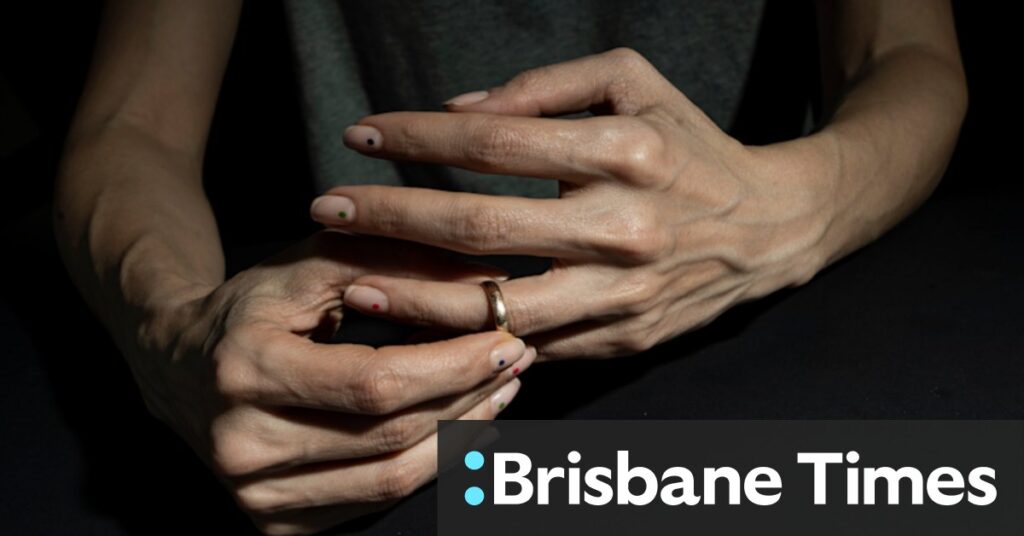
According to the Holmes-Rahe Life Stress Inventory, divorce ranks second only to the death of a spouse in terms of psychological stress. This stark reality might explain why many individuals hesitate to leave a relationship, despite profound unhappiness. The decision to leave is not merely about ending a partnership; it involves grieving the past, present, and an imagined future.
The Holmes-Rahe scale, developed by psychiatrists Thomas Holmes and Richard Rahe in the 1960s, quantifies stress but fails to capture the slow, agonizing build-up to a breakup. It doesn’t account for the sleepless nights spent rehearsing conversations that may never happen or the quiet grief of sitting beside someone you once loved, wondering where that connection went. Marriage often represents connection, belonging, family, and stability, and walking away can feel like stepping into thin air.
The Emotional Limbo Before Separation
Clinical psychologist Phoebe Rogers notes that this emotional limbo is particularly common among women. They may experience “profound grief, disappointment, shame, and guilt” when contemplating leaving a marriage. “It’s not just the loss of a relationship – it’s the loss of an identity, a future, a sense of safety,” she explains.
For many, the heartbreak begins long before the actual separation and can be more painful than the act of leaving itself. If children are involved, the guilt intensifies. “Many women stay longer than they should because they believe keeping the family together is what’s best,” Rogers says. “But they often do so at the cost of their own mental health.”
Fighting for the Marriage
Interestingly, Rogers points out that in heterosexual relationships, women often fight for the marriage long before any formal separation. They raise issues, suggest therapy, and frequently bear the emotional burden. “By the time a woman actually walks away, she’s often already gone,” Rogers notes. “And the man is blindsided. But she’s been fighting for years.”
Blindsided by Betrayal
Anna*, a woman who experienced such a scenario, shares her story. “They always say the wife must have known,” she reflects. “How would I have known?” Despite trusting her husband Nathan*, Anna was blindsided by his infidelity. They had been each other’s first love, marrying young and building a life together. “You don’t go into marriage expecting someone to have an affair,” Anna says, her voice still carrying the sharp edges of betrayal.
“You might see the signs when you cast your mind back,” she concedes, “when you swap the rose-coloured glasses for darkened ones.”
The lies, more than the infidelity, devastated Anna. “Especially when those lies are being told to you by a man you’ve literally grown up with,” she adds. The prospect of leaving was complicated by their two children, a long marriage, and a shared history.
The Difficult Decision to Leave
Deep down, Anna knew she could never trust Nathan again. Yet, like many in similar situations, she wanted to make the “right” decision. She sought marriage counseling and endured a planned international holiday that nearly broke her. Ultimately, she ended the marriage: “I didn’t want to live the rest of my life pretending everything was OK.”
Anna left behind not just a husband but the life she had envisioned since she was 12. She abandoned an extended family, mutual friendships, financial security, and a predictable future. Although the years that followed were challenging, they were also clarifying. Anna eventually remarried, finding the emotional stability she had long sought.
The Truth About Leaving and Staying
There exists a cultural script suggesting that once you know, you go. In reality, many linger in relationships, hoping, bargaining, and often losing themselves in the process. They ask unanswerable questions: What if I regret it? What if I ruin my kids? Would things have changed if I’d just held on a little longer?
Questions about staying also arise: What if I lose myself completely? What if this sadness never lifts? What if I’m modeling something to my children that I never wanted for them?
Rogers emphasizes that the right decision isn’t about certainty but alignment. “You should feel like your most authentic self in your relationship. And if the relationship is damaging your mental health, and your partner is unwilling to own their part … that’s a red flag.”
The first time I ended my relationship, it was like ripping off a band-aid. Fast. Determined. Afraid that if I paused, I’d be convinced to return to the purgatory I was fleeing.
For many, the decision to leave is fraught with indecision and fear. Yet, as Anna and countless others have discovered, sometimes the most painful choice is the one that ultimately leads to peace and self-discovery.







